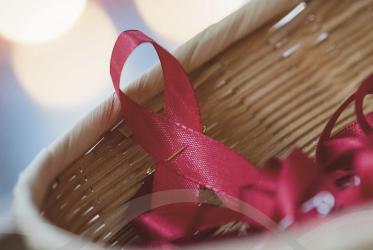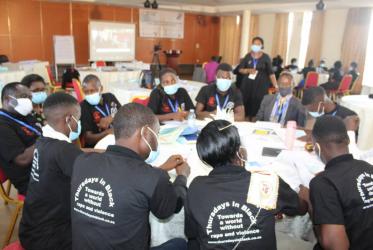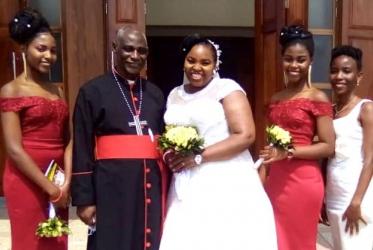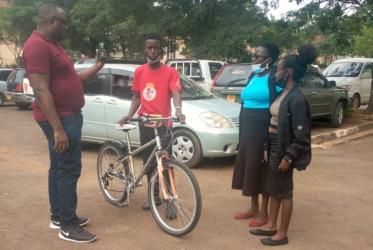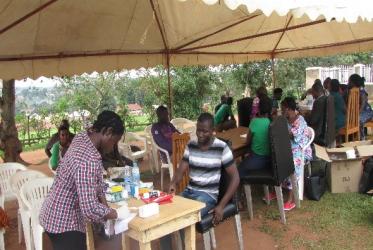Displaying 1 - 20 of 48
28 November 2022
WCC mourns passing of Hendrew Lusey-Gekawaku
23 October 2020
In Uganda, resilience and hope overshadow stigma
31 July 2020
Youth leaders: “We will stop at nothing” to end HIV and violence
17 October 2019
Frontline advocates in Uganda are putting a stop to HIV stigma
16 September 2019
WCC treatment manuals address HIV challenges in Uganda
02 August 2019
Faith and HIV treatment go hand in hand
06 March 2019
On the journey to HIV – bridging gaps, debunking myths
21 February 2019

